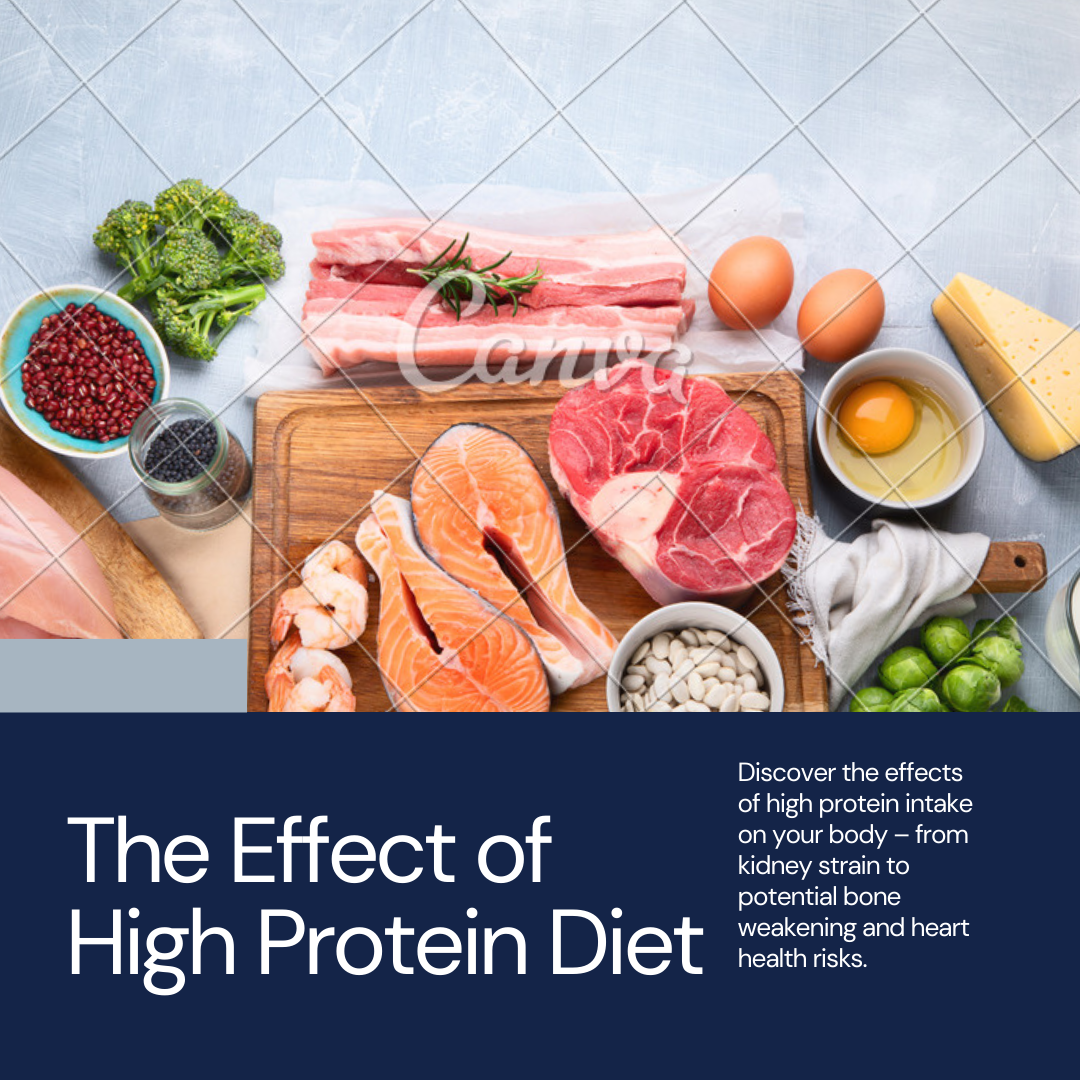Protein is important for your body, but can too much of it cause harm? Let’s dig into how excessive protein intake can affect your body and what you should know to maintain a healthy balance.
What Happens When You Eat Too Much Protein?
Your body needs nutrients for growth, repair, and overall health. However, consuming more protein (Nutrients) than your body needs can lead to potential health issues. The primary concerns revolve around your kidneys, bones, liver, and digestive system.
Impact on Your Kidneys
When you eat a lot of protein, your kidneys work harder to process the excess waste products. While they can handle this load in the short term, consistently eating too much protein can strain your kidneys over time. Individuals with kidney problems should be especially cautious, as excessive protein intake might worsen their condition.
- Increased Filtration: Higher nutrients consumption leads to increased waste products, making the kidneys work harder to filter them out.
- Stress on Kidneys: Excessive nutrients puts stress on the kidneys due to the increased workload of eliminating waste.
- Potential Damage: Prolonged high nutrients intake may lead to kidney damage or dysfunction, particularly in those with existing kidney issues.
- Aggravation of Kidney Problems: For individuals with kidney concerns, excess protein can worsen these issues due to the added strain on the kidneys.
- Importance of Balance: Maintaining a balanced protein intake is crucial to prevent potential kidney-related complications. Consulting a healthcare professional or dietitian can provide guidance on suitable protein consumption, especially for those worried about kidney health.
Bone Health and Calcium
Excessive protein consumption might lead to your body pulling calcium from your bones to neutralize the acid produced during protein digestion. This can potentially weaken bones over time, affecting their strength and density. However, the impact can vary based on your overall diet and lifestyle.
- Calcium Loss: Excessive nutrients consumption may lead to the release of calcium from bones to neutralize the body’s acidity.
- Weakening Bones: Continuous calcium loss due to high nutrients intake can potentially weaken bone structure and decrease bone density, increasing the risk of osteoporosis.
Liver Function and Heart Health
Your liver processes nutrients, and while it can handle moderate amounts, too much protein may stress it out. Also, some nutrients-rich foods come with extra saturated fats that could potentially impact your heart health. Being mindful of the sources and amounts of protein you consume is important for overall well-being.
On the Heart:
- Saturated Fats: Some high-protein sources, especially animal-based ones, might contain high levels of saturated fats.
- Heart Health Risks: Excessive nutrients, particularly from high-fat sources, can elevate cholesterol levels and increase the risk of heart disease.
- Moderation Matters: Balancing nutrients intake with leaner sources and a well-rounded diet is crucial to support heart health and minimize risks associated with high saturated fat intake. Seeking advice from healthcare professionals can help in maintaining a heart-healthy diet.
Digestive Discomfort
High-protein diets, especially those lacking in fiber, might lead to digestive issues like constipation and discomfort. Ensuring a balanced diet with ample fiber can help alleviate these concerns.
10 key habits for good Health and Happy Life
Finding a Healthy Balance
It’s crucial to maintain a balanced approach to protein intake. Consulting a healthcare professional or a registered dietitian can guide you in understanding your individual needs and preventing potential health risks associated with excessive nutrition consumption.
In conclusion, while protein is essential, moderation is key. It’s about finding the right balance and ensuring your diet is diverse and includes a mix of essential nutrients. Remember, it’s not about removing nutrients from your diet but rather about managing it so that it complements other nutritional elements.
Maintaining a well-rounded diet is the secret to a healthy and happy body. Always aim for a balanced plate with nutrients, carbohydrates, healthy fats, and a rainbow of fruits and vegetables. This way, you’re providing your body with everything it needs to function at its best.
Strike the perfect balance, seek advice when needed, and enjoy a varied diet—your body will thank you for it!
Note:- In this blog use nutrients on behalf of protein.
